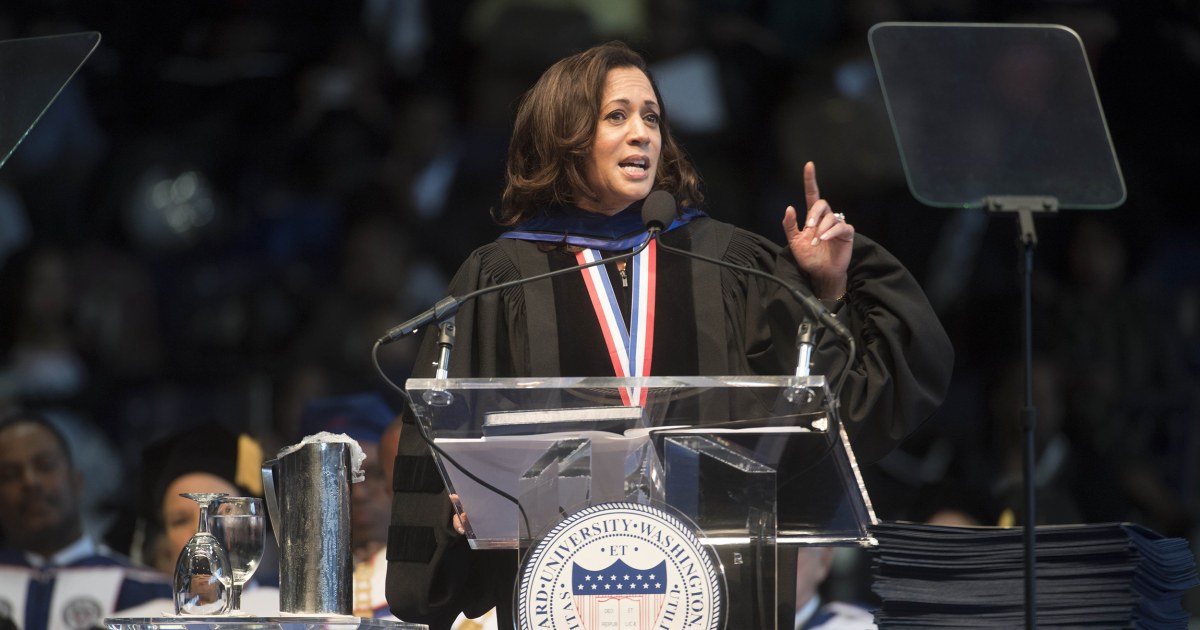
“She was well-steeped in her heritage both as a woman of Jamaican descent and a woman of South Asian descent,†said Jill Louis, a Dallas-based corporate attorney, who attended Howard with Harris and is one of Harris’ line sisters in Alpha Kappa Alpha, the historically Black sorority.
Ultimately, she said, Howard made students feel “comfortable in their Blackness and in understanding its expansiveness and to move and transcend as a human.†And the campus was the springboard from youth to adulthood where Harris embraced her roots as both Black and Indian, on a path toward making history as she has done this week.
Since the announcement was made, much of the focus has been on the fact that, if elected, Harris would become the first female, first Black and first Asian American vice president.
She said Harris has also made certain signals on how she identifies herself — for instance, by attending a historically Black college and joining a Black sorority — but not necessarily to the exclusion of her South Asian identity.
Post-Obama and after numerous examples of racism and police brutality against Black Americans recently, Gillespie said that having Harris on the ticket should mean that substantive issues for Black Americans are now seriously addressed.
Particularly progressive and young Black voters will likely demand answers from Harris.
And despite Biden's lead over Trump among Black voters — 92 percent to 5 percent — the poll found that about half “support Biden†and the other half mainly “oppose Trump.â€.
South Asian Americans in particular voted most strongly Democrat with some subgroups like Pakistanis voting as high as 96 percent for Clinton.
Indian Americans voted for the Democrat at 84 percent, a rate higher than the national average of the greater Asian American population, who voted for Clinton at 79 percent.
Data from 2018, just before Harris formally declared her presidential candidacy in January 2019 on Martin Luther King Day, shows that 52 percent of Indian Americans had a “favorable†opinion of her.
In interviews with several Indian Americans in February 2019, South Asian American leaders indicated that many in the community were likely unaware of Harris' Indian heritage
“It took Harris a little while during her presidential run to open up about her Indian American heritage and Asian American identity,†Karthick Ramakrishnan, a public policy and political science professor at the University of California, Riverside, explained
Lakshmi Sridaran, executive director of South Asian Americans Leading Together, a nonprofit civil rights group, emphasized that physical representation of the Asian American community is crucial, but it doesn’t equal political representation
She said she hopes the Asian American electorate assesses Harris as a candidate based on policy, listing issues like COVID-19 relief legislation and policing among topics voters should dig further into
“As exciting as it is to have an Asian American and particularly a South Asian American in this role, what's important and what we encourage community members to do is assess her and engage her (and all candidates) on where she stands on issues that impact South Asians and to examine her voting record and policies," Sridaran said
